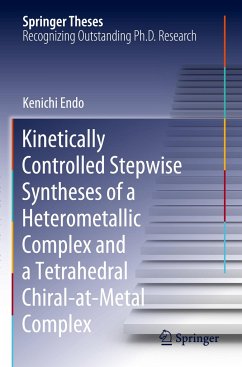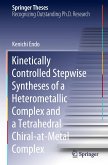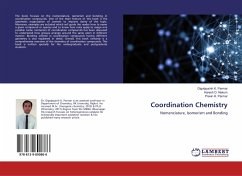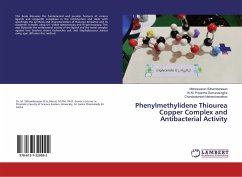This book describes novel synthetic methodologies for two kinds of structurally elaborate metal complexes: a heterometallic complex and a tetrahedral chiral-at-metal complex. The book provides the tools and inspiration to chemists for development of metal complexes with wide structural diversity than had previously been possible. For each of the two topics, existing synthetic methods for similar compounds are discussed first, and then new strategies are presented, followed by the demonstration of the synthesis of novel compounds supported by experimental results.
Both of the final products in this research, a Co-Ni heterometallic complex covered in the first topic and a tetrahedral chiral-at-metal complex in the second one are difficult to obtain by using common synthetic methods for thermodynamic reasons. This research achieved highly selective syntheses of these compounds using newly designed strategies that enable precise kinetic control. Suchan approach will be useful for synthesizing other new metal complexes.
Since the last century, organic chemistry has flourished with the development of a variety of synthetic techniques that make precise kinetic control possible. Coordination chemistry of 3d or main-group transition metals has been mainly based on simple one-step reactions that yield only thermodynamic products. The publication of this book helps pave the way to kinetically controlled precise syntheses of various metal complexes.
Both of the final products in this research, a Co-Ni heterometallic complex covered in the first topic and a tetrahedral chiral-at-metal complex in the second one are difficult to obtain by using common synthetic methods for thermodynamic reasons. This research achieved highly selective syntheses of these compounds using newly designed strategies that enable precise kinetic control. Suchan approach will be useful for synthesizing other new metal complexes.
Since the last century, organic chemistry has flourished with the development of a variety of synthetic techniques that make precise kinetic control possible. Coordination chemistry of 3d or main-group transition metals has been mainly based on simple one-step reactions that yield only thermodynamic products. The publication of this book helps pave the way to kinetically controlled precise syntheses of various metal complexes.








